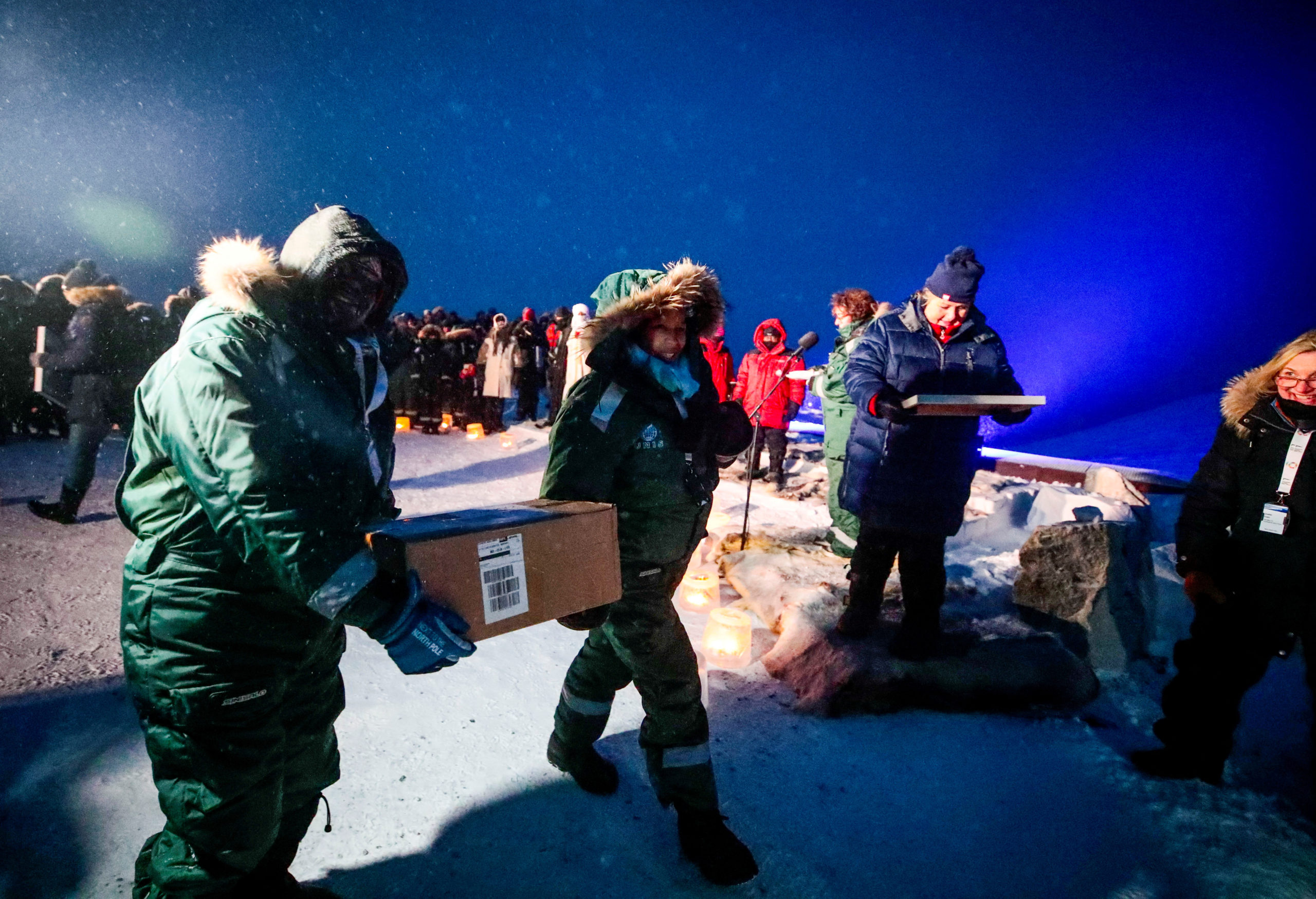Iraq and Uruguay deposit crop seeds at Arctic doomsday vault
It's the first time the two nations have sent seeds to the Svalbard vault.

OSLO — An Arctic vault built to preserve the world’s crop seeds from war, disease and other catastrophes will receive new deposits on Wednesday, including for the first time from Iraq and Uruguay, Norway’s Ministry of Agriculture and Food said.
The Svalbard Global Seed Vault, set in permafrost caves on Spitsbergen island halfway between mainland Europe and the North Pole, is only opened three times a year to limit its seeds’ exposure to the outside world.
Launched in 2008, the vault acts as a last resort for national and regional gene banks, and played an essential role between 2015 and 2019 in rebuilding seed collections damaged during the war in Syria.
More than 45,000 seed samples from 13 gene banks from Asia, Australia, Europe and Latin America will be added on Wednesday, lifting the total number of deposits to more than 1.2 million for the first time, the Norwegian ministry said in a statement.
Iraq’s first deposit will consist of 418 seed samples of wild and cultivated species, including wheat and rice, while Uruguay’s initial delivery comes in the form of 1,892 seeds of wheat and barley.
“The participation of countries in the Seed Vault’s mission is vital to underwriting the life insurance that genetic diversity represents,” said Stefan Schmitz, executive director of the Crop Trust which manages the facility alongside Norway.
South Korea and Mexico were also among the nations making deposits on Wednesday.
The world used to cultivate more than 6,000 different plants but U.N. experts say we now get about 40 percent of our calories from three main crops — maize, wheat and rice — making food supplies vulnerable if climate change causes harvests to fail.

